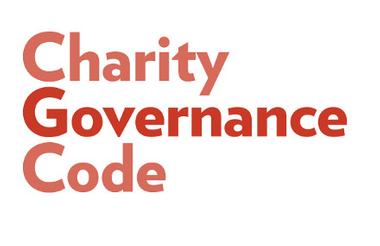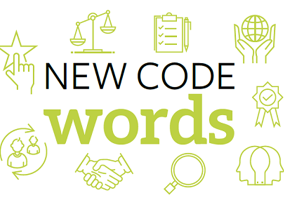If 2020 has taught us anything, it’s how quickly things can change.
Developments over the last year – whether Covid-19 and its human and financial consequences or the Black Lives Matter movement – have shaken the context within which charities operate and shone a light on the things that matter most.
Against this backdrop, the steering committee of the Charity Governance Code – which sets out seven principles of good governance for charities of all shapes and sizes in England and Wales – have been reviewing whether the Code is still relevant to charities in this ever-changing landscape.
The Code is a simple tool for charity trustee boards to ensure their governance structures are fit for purpose. That means they are focused on achieving the charity’s aims, so they can use resources effectively, comply with relevant legislation and – ultimately – continue to serve their beneficiaries.
When we last updated the Code in 2017, we committed to keeping it alive and relevant. Three years on, in February we launched a consultation to review the Code.
We’ve had feedback from over 800 organisations and individuals. More than 85% of respondents supported a fresh approach and we’ve spent the last few months researching and refining two of the seven principles: the Equality, Diversity and Inclusion Principle and the Integrity Principle.
Why equality, diversity and inclusion matter for good governance
For all charities – big or small – equality, diversity and inclusion (EDI) matter for two main reasons.
First, great EDI practice sits at the heart of good governance. We’d argue that you can’t have good governance without great EDI.
To effectively deliver their public benefit, boards must focus on achieving equality of outcomes carrying out their charitable purpose.
To make better and more informed decisions, boards must be diverse. That includes, where appropriate, reflecting and highlighting the voices of the community that the charity seeks to serve. And for these decisions to be robust, all trustees must have the power to fully participate. Societal power imbalances must be prevented from playing out in the boardroom.
Second, EDI has the power to create social justice – in our boardrooms, organisations, across the charity sector as a whole and ultimately throughout society.
So what does good EDI practice look like?
Our new EDI Principle is designed to enable charities to be much bolder in this area.
We recognise that all charities are at different stages in their diversity journey, and we want the new Principle to be accessible for all. Whatever the starting point, our hope is that the updated Principle will help all charities to counter imbalances of power, perspective and opportunity.
We’ve set out four stages of recommended practice for charities in their EDI journey. Boards should:
- Think about why EDI is important for their charity and assess the current level of understanding. The starting point should be making space as a board to understand current systems, cultures and the broader context. You’ll then be less likely to rush to fix a problem with ‘solutions’ that could actually make things worse or lead to tokenism.
- Set out plans and targets tailored to your charity and its starting point. Boards need to develop context-specific, realistic and time-bound goals. These might be behavioural or they might be quantitative. They might relate to learning, to regular discussions on EDI, to recruitment practices or to making space for new board members.
- We’re not including any specific targets or quotas in the Code (e.g. for board composition) as we believe it’s up to charities themselves to set context-specific goals. Monitor and measure how well you’re doing. With plans and goals developed, they need to be put into action. We want boards to be bolder and willing to make mistakes and learn from them through a process of regular self-assessment.
- Be transparent and publish the charity’s progress. The final step in the EDI journey is to begin to publish performance against the goals that the board has set, including sharing progress, challenges and learning.
EDI is an ongoing journey. As society changes, organisations progress and boards develop, regular reflection will help Boards ensure EDI is put front and centre.
A fresh approach to Integrity
Alongside EDI, we’ve also updated the Code’s Integrity principle.
The last couple of years have taught the charity sector a lot about integrity and safeguarding, and the harm that can be caused when integrity is abused. Now more than ever is a time to make sure the Code’s relevant.
Integrity in charity governance is about much more than managing funds and financial assets well.
It’s also about values, ethical principles in all decision-making and creating a welcoming and supportive culture. The personal behaviour of charity trustees is paramount and we’ve updated the Code to make this clear.
Following the Charity Commission’s safeguarding regulatory alert last year, we’ve put a new emphasis on the right of everyone who comes into contact with a charity – including staff, volunteers, partners and beneficiaries – to be safe and to know how to speak up and raise concerns.
These two new Principles may be challenging for some charities. That’s why we’re sharing lots of guidance, hints and advice to help boards in their journey on the updated Charity Governance Code website.
Pari Dhillon is an equity, social justice and leadership consultant. Pari advised the Charity Governance Code Steering Group on the review of its Diversity principle.
Rosie Chapman is the independent chair of the Charity Governance Code Steering Group and former director of policy and effectiveness at the Charity Commission
Related articles












